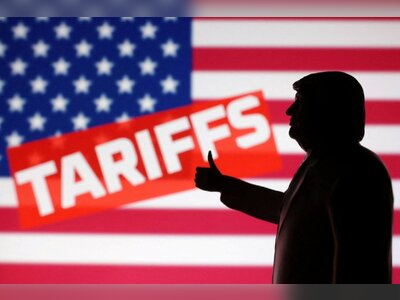
Indonesia Proposes Trade Concessions Ahead of TARIFF Negotiations with the US
A delegation from Jakarta will seek tariff reductions with Washington as part of trade discussions amid new US tariffs.
On April 8, 2025, Indonesia announced a series of concessions for U.S. imports aimed at mitigating the impact of new tariffs announced by the United States.
President Prabowo Subianto presided over a seminar in Jakarta where the need for a resilient national economy was emphasized in light of the impending tariffs.
Indonesia plans to send a high-level delegation to Washington next week to negotiate a reduction of a proposed 32% tariff set to take effect shortly.
Chief Economic Minister Airlangga Hartarto, who will lead the delegation, indicated that Indonesia is looking to import liquefied petroleum gas, liquefied natural gas, and soybeans from the United States as part of its negotiations.
These discussions involve key figures including the country’s ministers, the governor of Bank Indonesia, and leaders from various industries.
Finance Minister Sri Mulyani Indrawati outlined specific concessions to be implemented, which include lowering import taxes on steel, mining products, and health equipment from between 0% and 5%, down from a previous range of 5% to 10%.
Furthermore, the import tax for electronics, mobile phones, and laptops from all countries is set to decrease from 2.5% to 0.5%.
Indrawati noted that Indonesia aims to position itself as an alternative source for U.S. imports, potentially replacing countries like Vietnam, Bangladesh, Thailand, and China, which face higher reciprocal tariffs under the Trump administration's new trade regulations.
In 2024, Indonesia recorded a $16.8 billion trade surplus with the United States, making it the third-largest export destination for the Southeast Asian nation, with total shipments amounting to $26.3 billion.
Major exports to the U.S. include electronics, apparel, and footwear.
Additionally, the Indonesian government is considering increasing imports from the U.S. and is reassessing local content regulations that impact U.S. technology and communication firms.
This review follows issues related to the domestic sale of the Apple iPhone 16, which was delayed until adjustments were made to investment commitments by the company.
President Prabowo Subianto presided over a seminar in Jakarta where the need for a resilient national economy was emphasized in light of the impending tariffs.
Indonesia plans to send a high-level delegation to Washington next week to negotiate a reduction of a proposed 32% tariff set to take effect shortly.
Chief Economic Minister Airlangga Hartarto, who will lead the delegation, indicated that Indonesia is looking to import liquefied petroleum gas, liquefied natural gas, and soybeans from the United States as part of its negotiations.
These discussions involve key figures including the country’s ministers, the governor of Bank Indonesia, and leaders from various industries.
Finance Minister Sri Mulyani Indrawati outlined specific concessions to be implemented, which include lowering import taxes on steel, mining products, and health equipment from between 0% and 5%, down from a previous range of 5% to 10%.
Furthermore, the import tax for electronics, mobile phones, and laptops from all countries is set to decrease from 2.5% to 0.5%.
Indrawati noted that Indonesia aims to position itself as an alternative source for U.S. imports, potentially replacing countries like Vietnam, Bangladesh, Thailand, and China, which face higher reciprocal tariffs under the Trump administration's new trade regulations.
In 2024, Indonesia recorded a $16.8 billion trade surplus with the United States, making it the third-largest export destination for the Southeast Asian nation, with total shipments amounting to $26.3 billion.
Major exports to the U.S. include electronics, apparel, and footwear.
Additionally, the Indonesian government is considering increasing imports from the U.S. and is reassessing local content regulations that impact U.S. technology and communication firms.
This review follows issues related to the domestic sale of the Apple iPhone 16, which was delayed until adjustments were made to investment commitments by the company.











